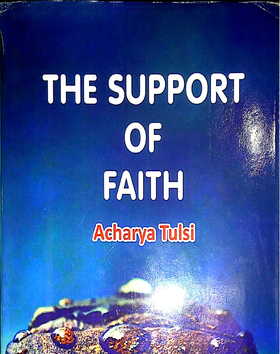What are the inevitable requirements of life? In order to find out the reply of this question, five factors may be conjugated—Food, Clothes, Building, Education and Medical treatment. Among these factors food counts first. So many people have no resources for medical treatment. Still they live. People living without any education are numerous. There are lakhs of people who have no residence. Such people are compelled to lead their life on footpath. Clothes are directly related with civilization. Tribal people wear scanty clothes. Some people are seen moving undressed. Now remains the issue of food. This is the basic requirement of life. We may live without food for sometimes, but that duration cannot be too long. Whether he is monk, patient or a person passionate for enjoying life—all need food.
Each creature of the world lives on food. If we are to live, we have to take food. Then what is the purpose to discuss this issue? This discussion does not relate to the need of food. This is related with conscience. When to take food? How to take food? How many times we have taken food? What is the process of taking food? There are so many points which warrant discussion on food. Those who do not think about this issue, they cannot differentiate between edible and non-edible things. Taking food non-sensually harms health, even grabs life. That is why it is viewed that food is necessary, but more necessary is to take food sensibly.
Jain Tirthankars have prescribed two elements of Sadhana - Sanwar and Nirjara (संवर और निर्जरा). Sanwar (संवर) is preventive.
It prevents instincts. Nirjara (निर्जरा) is operative. There are twelve categories of Nirjara (निर्जरा). Among the first category, four are related with food. If ins and outs (पौर्वापर्य) of twelve categories are reviewed, it is revealed that in the beginning stage of Sadhanakal, Sadhak concentrates his attention on food. Food is related with taste and taste is related with tongue. Tongue wants taste only. When tongue comes in tonels with any tasty thing, we do not care whether our stomach needs that tasty thing or not. It is said that tongue has everything, but not conscience. A person whose conscience arises he binds the bell of Aswad (आस्वाद) on the throat of tongue. Hearing the bell of Aswad (आस्वाद) mouses of taste enter into their holes. Now the difficulty, what we confront is how to hang the bell of Aswad (आस्वाद) on the throat of tongue?
Mahatma Gandhi has prescribed eleven Vratas (व्रत) for the upliftment of life. Among them conquering over taste is an independent Vrat. Why? Gaiidhiji was very conscious about minor things. He knew the fact that a person who cannot control over his tongue, how he shall control his mind? Alongwith the Vratas alike truth, non-violence, Asteya (अस्तेय), Bralimcharya (ब्रम्हचर्य), he also added the Vrat of Aswad (आस्वाद) and proved that it is utmost necessary to conquer over the juices of tongue for going ahead on the path of Sadhana. In order to follow Aswad (आस्वाद) Vrat eating meat, drinking alcohol, bhang, smoking or chewing tobacco has been restricted.
If there is no restraint on taking food and we do not take food with conscience, neither Swadhyaya (स्वाध्याय) nor Dhyan (ध्यान)'is possible. Neither service can be rendered nor can we do any remarkable job. Devoid of restraint on taking food we cannot even imagine mental tenacity. So far as my thought is concerned, I feel that scientists should specifically concentrate on this Sadhana.
There is a discriminating line between men and animals and that is conscience. What is to the addressed as conscience? If we research about food, possibly we will find that the conscience of animals and birds is more alive than men. Animals and birds take food only when they are hungry, whereas man takes food only for taste even though his stomach is full with food. Several animals and birds often do not take food at night, because they live natural life. But man does not care for day or night in respect of taking food.
If restraint on food is perceived in different angles and if the same is analysed on the basis of material, sphere, period and sense; several problems regarding food may be solved. Crisis of food is increasing in conformity with the changing time. Today the entire agony of man is cantered on money. He is not at all concerned about the crisis moving around food. What food he is taking, how far it is affecting his mind, health and behaviour—keeping these factors into account if we change our food-habits, we may find out the clue of solution.
 Acharya Tulsi
Acharya Tulsi
